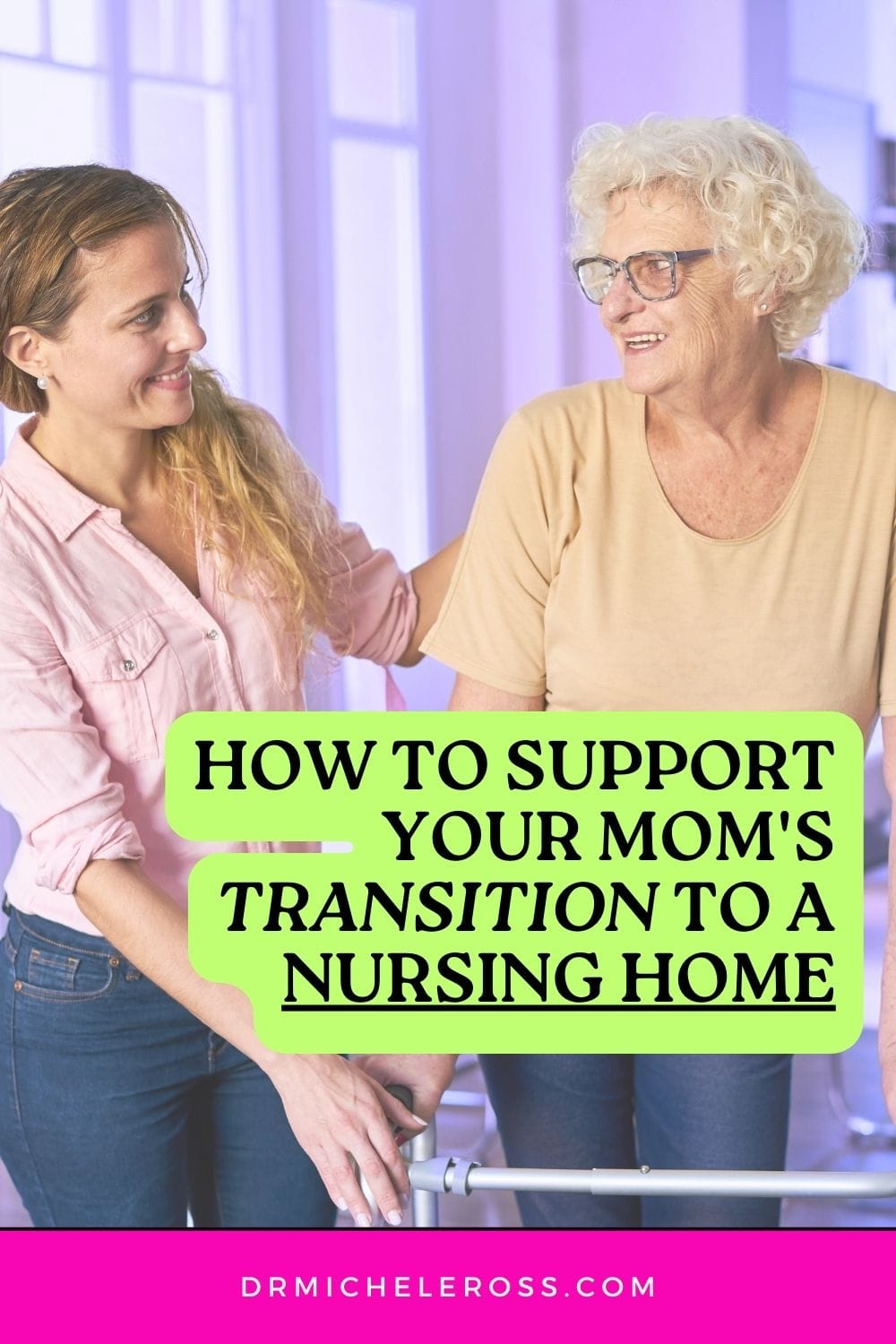
Deciding to move your mother into a nursing home is a huge decision that can be filled with loads of emotions. You will find that you have many mixed feelings; some will be relieved knowing that they will receive proper care, but these will come with concerns about their safety, comfort, and emotional well-being.
These emotions are completely natural. With a good plan in place and some research, you can start to feel more comfortable about the transition from living at home to a nursing home and also support your loved ones in feeling more comfortable about it.
Let’s explore ways to feel more at ease with this change and ensure your loved one thrives in their new environment.
Understanding the Need for a Nursing Home
Acknowledging that a nursing home is the best option for your mom can help to get rid of any feeling of guilt or worry that they are going to be OK. Usually, moving into a care facility is the better option for your loved ones, but they are more at risk by staying at home.
These facilities provide professional medical care, social engagement, and assistance with daily living tasks, which may be difficult to manage at home. Once you realize how little help they are getting at home and your limited time to care for them as you want to, you will learn that a nursing home is making sure they receive the attention they deserve, wwhichis essential.
Be sure to communicate openly with your mother’s doctors, nursing home staff, and other care professionals about their specific needs.
Understanding how a nursing home can look after your mom’s needs and provide appropriate care will offer reassurance that this decision is in the best interest of their health and safety.
Choose the Right Facility
One of the most effective ways to feel more comfortable about the move is to research and choose a nursing home that you feel you can trust and rely on. Consider factors such as:
- Cleanliness and upkeep: visit the facility and observe how well it is maintained.
- Pay attention to the staff-to-resident ratio, as higher ratios often mean more personalized care.
- Check for safety features, such as secure exits, handrails, and call lights in nursing homes that allow residents to request assistance quickly.
- Look for recreational programs and activities, as these can significantly enhance your moms’s quality of life.
Read reviews and ask for recommendations to understand the level of care and culture provided to current residents and their families. This will help you feel more confident in your choice.
Involve Your Mom in the Process
When possible, involve your mom in the decision-making process.
Take them with you to see the facilities and allow them to voice their own opinions and also ask questions. Allowing them to do this will help them to make the transition feel less intimidating and help them see it as a positive step rather than a loss of independence.
Encourage honest and open conversations about their concerns, addressing any fears they may have, it might be that they are worried they are going to lose the family connection or they don’t have a good feeling about the place that you are visiting. Don’t be afraid to visit more than one place, as this can help to feel more comfortable with the decision to move.
Personalize Their New Space
Transforming a nursing home into a space that feels like home is a simple yet impactful way to help your loved one feel more comfortable in their new surroundings. You can achieve this by decorating with familiar items such as family photos and mementos. Consider adding decorative touches like curtains, artwork, small plants, and their favorite bedding or cozy blankets.
While it’s important to personalize the space, be sure to follow the guidelines set by the facility regarding what items are permitted. The goal is to create a warm and welcoming environment that still feels like their own.
Build Strong Relationships with the Staff
Getting to know the nursing home staff can help you feel more confident about the care your loved one is receiving. Try to establish open communication with the nurses, caregivers, and administrators.
Make sure you ask questions that might have about their routines, meal plans, or medical care.
Stay involved to foster a positive relationship with all the staff members. This approach ensures that your loved one’s needs and priorities are met and helps you stay informed about their well-being.
Stay Connected
A common concern for both family members and residents is losing connection with the outside world, but there are many things you can do to make sure this doesn’t happen. Moving into a nursing home doesn’t need to mean that the emotional family connection is gone.
To maintain a strong bond, schedule regular visits, calls, and video chats.
When visiting, plan activities that they enjoy, such as watching a favorite movie together, attending a facility-hosted event, or playing board games or cards. Encourage other family members and friends to visit as well, which can help create a steady flow of connection and support.
Focus on Safety and Accessibility
Knowing that your loved one is in a safe environment is important to make sure you are feeling comfortable with the transition to a nursing home.
These facilities are well-equipped with safety measures to reduce risks, such as slip-resistant flooring, emergency protocols, and handrails.
An essential safety feature to look for is call lights in nursing homes, which allow residents to quickly request assistance when they need it. These systems ensure that help is always within reach when your loved one needs it. This can help to make them feel more comfortable about moving into a nursing home and realising that they will have great support when they are there.
Encourage Social Engagement
Interactions are crucial for mental and emotional well-being, and nursing homes are no different. They provide a wide variety of programs to help residents connect with others, such as clubs, outings, and group activities. Encourage your loved ones to participate in these opportunities. If they are hesitant, consider attending a few events with them initially to help ease their anxiety. Building new friendships can significantly improve their experience and make the facility feel more like a home and community.
Monitor Their Adjustment
During the first few weeks in a nursing home, there is going to be a period of adjustment, this is probably going to take some time. It’s important to check in with your loved ones frequently to see how they are feeling and to discuss any concerns they may have.
Speak with the staff to get updates on their progress and participation in the various activities available. If any issues come up, work together with the nursing home team to find ways to make the living arrangements more comfortable.
Conclusion
Transitioning a loved one into a nursing home is a significant life event. However, it doesn’t have to be overwhelming or scary. By choosing the right facility and personalizing their space to make them feel more comfortable, you can help them stay connected and ease the transition. This way, you can ensure that they feel supported in their new living arrangements.
Pin This Post





